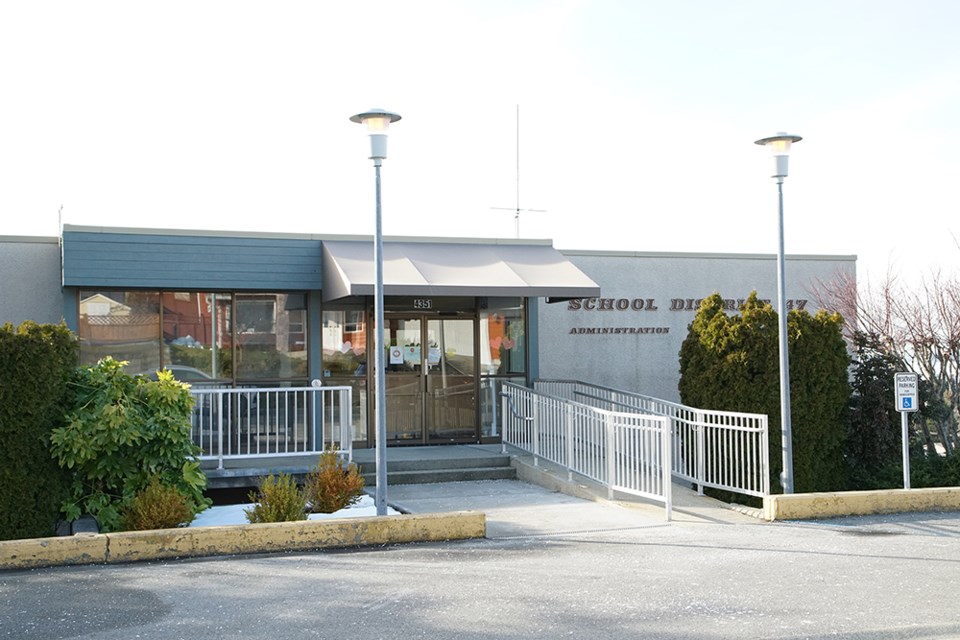A British Columbia Teachers’ Federation (BCTF) survey has revealed that teachers are experiencing higher stress and workload this year, which is reflected in School District 47, a local spokesperson says.
“As teachers, we do not have contracted hours of work, and I am hearing that teachers are finding they have an increased workload, especially with reporting and the many voluntary opportunities provided by teachers in the district that are outside of school hours, stated Powell River District Teachers’ Association president Izi Loveluck, in a written response to questions from the Peak. “While these activities are voluntary, any participation means that the professional work of teachers to prepare and plan for classes, assess student progress and reporting still has to be done and this results in increased teacher workload.”
Loveluck stated that thanks to retired teachers, there is a reasonable number of teachers teaching on call (TTOCs).
“However, there are still some days that all TTOCs are booked, and classrooms are filled by non-enrolling teachers, these very same teachers who support our most vulnerable students who will not receive services that day,” stated Loveluck. “There are even days where there are no replacements and other non-enrolling teachers or administrators need to teach in the classroom, and in doing so, they are not available for students. Additionally, provincially, there are less and less specialized teachers who are willing to relocate to our community.”
Loveluck stated that teachers care about their students and are constantly working to provide the best possible learning conditions.
“For reasons including COVID-19, some students are arriving at school with needs that cannot be met by classroom teachers,” stated Loveluck. “If student needs are not met, they cannot learn effectively. Teachers are being asked to do more and more for students. We are trained as teachers but are not trained as counsellors or other care providers.
“Teachers recognize these unmet student needs and less than optimal learning. These are both catalysts for increasing teacher stress. We want our students to be healthy, happy and successful, so they can learn.”
Continuing commitment
Loveluck stated that teachers working for School District 47 are committed to teaching and continue to do as much as possible to teach students.
“Providing the proper supports, from birth, to meet children’s basic needs would help them learn,” stated Loveluck. “This takes not only funding but, like health care, the provision of trained specialists. Currently, School District 47 is advertising for a clinical counsellor to assist vulnerable students. Hopefully, we will be able to recruit one.”
Loveluck stated that although teachers experience increased workload stress and see the unmet needs of students, they work every day to teach and help students.
“Despite these problems, there are many successes and joys in School District 47 schools, including those programs that offer innovative place-based learning such as outdoor learning, online learning, traditional skill building, in addition to trades and dual-credit programs, as well as in-class learning,” stated Loveluck. “Teaching is a rewarding career, but surveys show that teachers are experiencing increased workloads and stress, which can lead to burnout and leaving the profession. We need to do all we can to support both teachers and their students.”
According to a release from BCTF, of the teachers surveyed in the province, 81.5 per cent reported experiencing direct impacts from teacher shortages in their schools or districts. Some of the biggest impacts reported were being unable to get their students the support they need (62.3 per cent), loss of preparation time (41.6 per cent), and not taking personal or sick leave days when they needed them (35.9 per cent).
BCTF president Clint Johnston stated in the release that the findings show a critical need for school districts and the provincial government to introduce meaningful strategies for recruiting and retaining teachers before they burn out.
“Teachers are doing their best to make it work, but without significant staffing increases, the pressures on them are unsustainable,” stated Johnston. “Our public educators believe passionately in providing students with the best education possible and could do so much more with the full support of school districts and the BC government."




